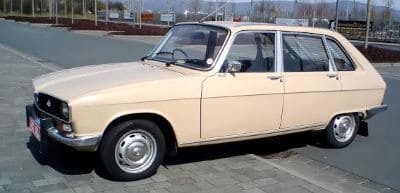4x4 and SUV in United Kingdom ›› Why are Older Cars Called Bangers?
What's the Meaning of Old Banger Car
Most of our readers will already be familiar with the term "banger" - lingo often used as a nickname for an old car or van.
But have you ever wondered where this colourful bit of British slang actually originates from, and why we use it to describe a rusty old car?
The Origins of the British Term "Bangers"
A lot of automotive terminology brings to mind scary images of clunky unreliable vehicles coughing their way down the road.
So, how did the humble car become associated with such a vivid term?
The aim of this article is to explore the origins, the cultural influences, and the popularity of calling cars "rusty old bangers". In fact, it's true to say that the literal origins are a distinct reference to sounds.
It's also fair to say that the term "banger" gets its roots from some of the sounds that old, and poorly maintained vehicles, tend to make. Hence, backfiring engines, clanging exhausts, and rattling bodywork all produce loud, disruptive noises - much like a "bang".
In other words, cars were prone to mechanical issues throughout much of the 20th century. The loud, banging noises of misfiring engines became synonymous with worn-out vehicles. Over time, these noisy, beaten-up cars earned the nickname "bangers".
British Slang and Cultural Influence
The descriptive word "banger" is most commonly used around the United Kingdom. It became part of everyday language as a description of inexpensive or old vehicles.
It fits quite neatly into British slang, which often has a knack for turning vivid or colourful phrases into universally understood terms.
Here's the thing:
It also refers to sausages in British parlance. You might agree that this is the sound sausages make when frying. Thus, the word came to describe cars that metaphorically or literally went "bang".
In British culture, the terminology also gained further traction with the popularity of "banger racing". This type of motorsport involves old, often decrepit, cars that race and crash into each other "in a controlled environment".
The sport celebrates these battered vehicles, further cementing the association between the word "banger" and old British cars.
Affordable and Disposable: The Economic Angle
People often refer to cheap, second-hand cars as "bangers". They are usually the kind of vehicle that someone might buy as a first car or only use on a temporary basis.
 So, unlike classic and historic cars, you're unlikely to find any junk cars in pristine condition.
So, unlike classic and historic cars, you're unlikely to find any junk cars in pristine condition.
As a consequence, they are valued more for their utility than their aesthetics, handling, or performance.
In this sense, calling a car a "banger" is less about its literal noises. It will be more about its perceived status as a no-frills, disposable mode of transport.
Is Modern Usage Fondness or Derision?
Today, the term "banger" can be used both as a degrading sign or one of affection. For some, it refers to a trusty old car that's seen much better days - but still gets the job done! Whereas, for others, it's a derisive term for a clunky, unreliable vehicle.
Interestingly, "banger" has crossed over into other domains of slang, particularly in music, where it refers to a "banging" or fantastic track. While unrelated to our blog about cars, this highlights how adaptable and enduring the word has become.
In Summary
Calling cars "bangers" is a tradition steeped in auditory imagery, cultural slang, and economic realities. Whether you're reminiscing about your first beat-up car or watching banger racing at one of the local race tracks, the term really does evoke a sense of nostalgia and practicality.
As a result, next time you hear the term you'll know it's more than just a throwaway word. It's a nod to the noisy, scrappy, and enduring spirit of cars and vans that keep going against the odds.
You might also enjoy reading about...
If you bought one of the new car models released in 1974 they are now fifty (50) years old - and officially classed as "antique cars".
So, our research team thought it would be a fun and interesting exercise to compile a list 50 year old cars that have retained their historical significance and classic styling.